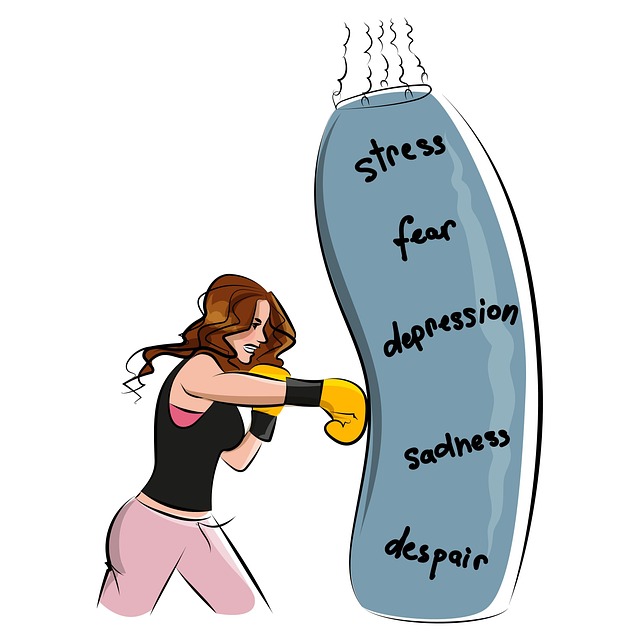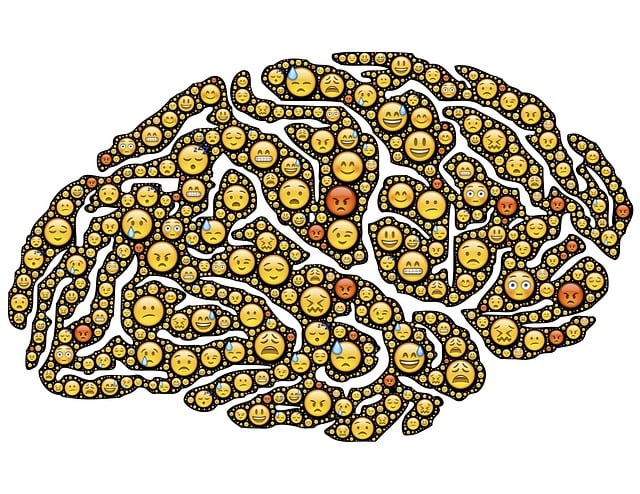Stress management is crucial for mental wellness, with chronic stress leading to psychological and physical conditions like OCD. Workshops teaching conflict resolution, mindfulness, deep breathing, meditation, cognitive behavioral therapy, and tailored coping strategies are effective. Culturally competent healthcare provider training ensures personalized support. Content should balance education with practical strategies, incorporating interactive elements and tailored discussions around topics like Lone Tree Obsessive Compulsive Disorder Therapy. Engaging facilitation fosters community and collective learning through diverse activities. Follow-up care, including check-ins, shared resources, and assessments, reinforces stress management techniques for improved mental wellness, particularly in cases of OCD.
Stress management workshops are powerful tools for promoting mental well-being. This comprehensive guide explores effective strategies for organizing such sessions, addressing key aspects of stress and its impact on mental health. From identifying common stressors like Lone Tree Obsessive Compulsive Disorder (OCD) to designing engaging workshop content and facilitating empowerment, each section offers practical insights. Learn how post-workshop follow-up and measuring success can enhance the therapeutic experience.
- Understanding Stress and its Impact on Mental Health
- Identifying Common Stressors and Their Effects
- Designing Effective Workshop Content for Stress Management
- Facilitation Techniques to Engage and Empower Attendees
- Post-Workshop Follow-Up and Measuring Success in Stress Therapy
Understanding Stress and its Impact on Mental Health

Stress is a ubiquitous part of modern life, but its impact on mental health cannot be overstated. It’s more than just feeling overwhelmed; chronic stress can lead to serious psychological and physical issues, including anxiety disorders like OCD (Obsessive Compulsive Disorder) and depression. Understanding how stress affects the mind and body is crucial for effective stress management workshops.
Workshops that incorporate conflict resolution techniques and mindfulness practices can help individuals develop coping strategies. These may include deep breathing exercises, meditation, and cognitive behavioral therapy (CBT) to challenge negative thought patterns. Additionally, healthcare provider cultural competency training ensures that participants receive support tailored to their unique backgrounds and experiences, fostering a safe and inclusive environment for learning stress management skills.
Identifying Common Stressors and Their Effects

Stress is a universal experience, but understanding its sources is key to managing it effectively. Many individuals face unique stressors that vary greatly from person to person. For some, work deadlines and high-pressure environments are primary culprits, while for others, personal relationships or financial worries may take center stage. It’s crucial to recognize these triggers as the first step towards mitigation. Common stressors often manifest in both our external environment and internal thoughts, emotions, and behaviors. For instance, a demanding job coupled with a lack of work-life balance can lead to chronic stress, affecting physical and mental well-being.
One specific area that merits attention is the impact of obsessive-compulsive disorder (OCD), which can significantly contribute to an individual’s stress levels. Lone Tree OCD therapy offers specialized treatment for those dealing with this condition. By identifying OCD symptoms and understanding their effects on daily life, workshops can empower participants to develop coping mechanisms. Social skills training within these programs is vital, as it fosters connections and supports individuals in sharing their experiences, thereby reducing feelings of isolation. Enhancing mental health awareness through such initiatives enables people to recognize stress triggers and implement effective stress management techniques.
Designing Effective Workshop Content for Stress Management

When designing content for a stress management workshop, it’s crucial to balance education with actionable strategies.
Participants benefit from understanding the neurobiology behind stress responses and developing self-care practices tailored to their individual needs. Incorporate interactive exercises that promote mindfulness techniques, breathing strategies, and positive thinking to reinforce learning. For example, guided meditations or yoga sessions can help attendees experience relaxation practices firsthand. Additionally, addressing specific challenges like Lone Tree Obsessive Compulsive Disorder Therapy through tailored discussions ensures relevance and engagement. Facilitators should also model effective communication strategies, fostering an open and supportive environment that encourages participants to share their experiences and learn from one another.
Facilitation Techniques to Engage and Empower Attendees

Engaging and empowering attendees is key to successful stress management workshops. Interactive facilitation techniques such as group discussions, role-playing scenarios, and guided meditations create an inclusive environment where participants actively contribute. These methods not only break monotony but also allow individuals to share their experiences, fostering a sense of community and collective learning. By encouraging open dialogue, facilitators can address specific concerns like Lone Tree Obsessive Compulsive Disorder Therapy, offering tailored strategies for managing stress and anxiety.
Incorporating creative activities such as art therapy or mindfulness exercises further enhances engagement. These techniques tap into different sensory modalities, catering to various learning styles and providing alternative avenues for emotional expression. Leveraging resources like Trauma Support Services and Burnout Prevention programs ensures that attendees gain access to comprehensive tools for mental wellness. Additionally, integrating real-life case studies and successful recovery stories from the Mental Wellness Podcast Series Production can inspire hope and motivate participants to implement effective stress management techniques in their daily lives.
Post-Workshop Follow-Up and Measuring Success in Stress Therapy

After facilitating stress management workshops, following up with participants is a vital step to ensure long-term success in their stress therapy journey. This can be done through personalized check-ins, where therapists or facilitators offer guidance and support, addressing any challenges faced since the workshop. It’s an opportunity to reinforce learned techniques and provide additional resources tailored to individual needs. For instance, offering ongoing access to recorded sessions, providing written materials with practical tips, or even scheduling follow-up meetings can enhance the impact of the workshop.
Measuring success in stress therapy involves a multifaceted approach. While self-reported improvements in well-being are valuable, combining this feedback with objective assessments like burnout prevention questionnaires for healthcare providers can offer a more comprehensive view. Additionally, tracking attendance and engagement in subsequent workshops or self-awareness exercises demonstrates the effectiveness of the initial program. Incorporating self-care practices into these measurements, such as monitoring sleep quality, stress levels, and overall life satisfaction, provides a holistic understanding of progress.
Stress management workshops play a pivotal role in empowering individuals to take control of their mental well-being. By understanding stress, identifying triggers, and employing evidence-based techniques, these sessions can significantly reduce anxiety and improve overall resilience. As discussed, tailored content, engaging facilitation, and meaningful follow-up ensure a transformative experience. Incorporating practices like mindfulness, cognitive-behavioral strategies, and social support groups, as seen in Lone Tree Obsessive Compulsive Disorder Therapy models, can offer lasting solutions to stress-related issues. Through dedicated workshops, individuals gain valuable tools to navigate life’s challenges with enhanced coping mechanisms and improved mental health outcomes.














